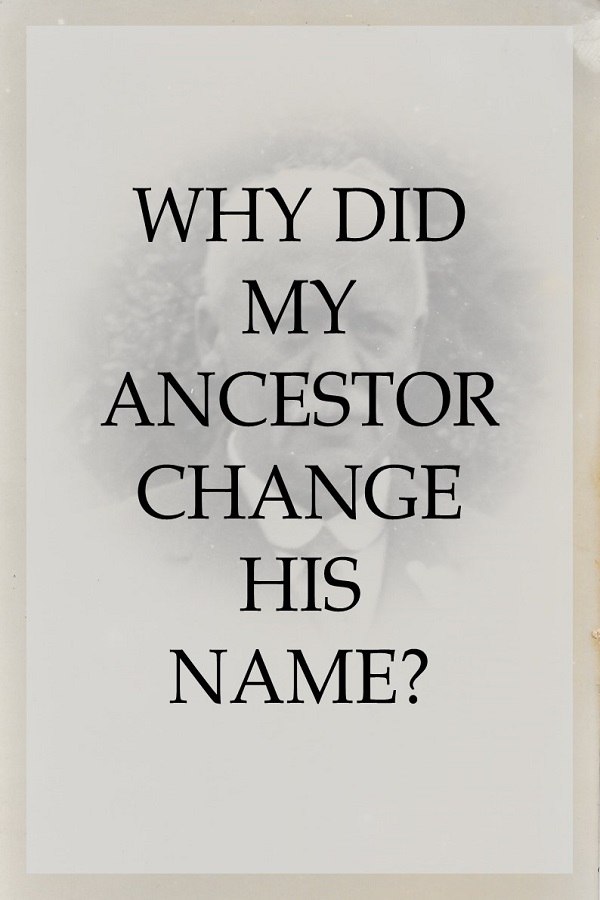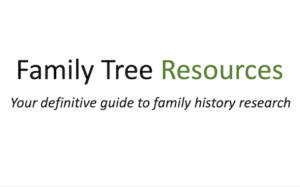
Surnames in the way that we know them today, for example, a surname of a father being passed on to his children, were not commonly used in Britain prior to the fourteenth century. Richardson means son of Richard, whereas Johnson means son of John.
Surnames were generally first used by the nobility and gentry, only later being adopted by other members of society. They were used because there was no way of distinguishing one Richard from another Richard.
Your ancestor may have changed his name because the spelling and pronunciation has changed over the years, he wished to distinguish his family from another in the area, or he wished to Anglicize his name to fit in if he had emigrated to a new country.
Spelling and Pronunciation Change
One reason your ancestor may have changed his name is because the spelling and pronunciation has changed over the centuries. I have seen many different spellings of my surname Dunkley, including Dunckley, Donckley, Donkley, Dunklee, etc. It is unlikely that the surname you presently use is the same as the spelling used by your ancestor.
Patronymic Naming Practices
Some changes of name were the result of patronymic naming practices, in which the child’s surname was formed from the first name of his father – for example, Augustsen was son of August.
His father August may have a completely different surname to his son such as Johansson because he, in turn, was the son of Johannes.
Other examples include Wilson, son of William, FitzGerald, son of Gerald, and Rodriguez, son of Rodrigo.
If a daughter was born, she would be known as Maria Augustdatter because she was the daughter of August.
Illiteracy Could Be A Reason For Your Ancestor’s Name Change
One of the main reasons for this apparent change of spelling is because many of our ancestors were unable to read and write, so did not know if what was entered in the official record by the clerk or clergyman was correct or not. Your ancestor may have only known how his surname was pronounced and had no idea how to spell it.
It is highly unlikely that the person entering the information in the record would have asked your ancestor how his name should be spelled even if he had memorized the spelling of the name.
Different Spellings of Surname on a Census Return
The census enumerator wrote down the name as it sounded – this did not take into consideration the fact that your ancestor may have had an accent that was difficult for the enumerator to understand, especially if your ancestor was born overseas.
Women Changed Their Name When They Married
Women, of course, changed their surname to that of their husband when they got married because it reflected the fact that women were subordinate to their fathers and then to their husbands.
More than One Family of the Same Name
Sometimes, if there was more than one family of the same name in a village, one family may have changed their name to distinguish the family from the other families in the village.
In the early 1800s, in Pattishall, Northamptonshire, Richard Heel chose to change his surname to Heeler to distinguish his family from that of another Richard Heel.
Change of Name in University or Army
It is always possible that if a person goes away to school or university, and there are two people of the same name in the dormitory or flat, that one person may change their name to distinguish them from the other person, and carry this new name on throughout their life.
When my Dad did his National Service, there were two Norman’s in his barrack room, so he was known as Frederick (his middle name) during the two years he was conscripted.
People Changed Their First Name
Some people changed their name because they did not like their first name, deciding instead to become known by their middle name. It is also possible that there was some confusion over the two names, and they were reversed. For example, Alice Nora became known as Nora Alice.
Anglicization of Name By Immigrants
Some immigrants anglicized their surname. For example Fischer became Fisher, Neumann became Newman, Albrecht became Albright, Andersen became Anderson etc.
Many immigrants found their name was difficult for others to pronounce and spell. Immigrants felt that they would fit in better if they changed their name.
Another reason that some immigrants changed their name is because they may have wanted to escape their past, or because they had no wish to be reminded of their old country, especially if they left because of some kind of persecution.
Many Jews faced anti-Semitism, so they may have wished to conceal their religious orientation because they feared they would be discriminated against.
How Do I Find Out If My Ancestor Changed His Name?
No Official Record Of Name Change
It is always possible that you will not be able to find an official record of a change of name. If a person wished to change their name, it has always been possible for him to do so without needing to officially register the change of name with the government or official body.
If your ancestor was previously married, and could not divorce because divorce was more difficult to obtain in earlier centuries, the partner may have taken on their new partner’s surname so it appeared that the children were legitimate.
To discover more information about divorce, and the records available, please read my article: how to find divorce records.
Change of Name Announced In Newspaper
If your ancestor wished to make his change of name public, he could have announced this change in local or national newspapers, such as The Times.
If there is an official public record of a change of name, it would have been announced in the London Gazette, Edinburgh Gazette, or Belfast Gazette.
Change of Name by Royal Licence
Changes of name issued by Royal Licence were common in the 18th and 19th centuries, but in latter years they were issued only if the following criteria were fulfilled:
- For someone to inherit, they had to take on the name of the deceased
- A settlement of marriage meant that the man had to adopt the name of his wife
- If a change to a coat of arms was required
If a change of name was issued by Royal Licence, it was announced in the Gazette. If you wish to search for Royal Licences, they are accessible in the National Archives under series SP 44 (up to 1782), HO 38 (1782-1868), HO 142 (1868-)
Private Acts of Parliament
Some name changes were permitted by a Private Act of Parliament, most commonly being used in the 18th and 19th centuries.
Arranged by year in printed volumes, Acts of Parliament are held in the National Archives.
Foreign Citizens 1916-1971
In 1916, enemy aliens living in Britain were not permitted to change their name, this being extended to cover all foreigners in 1919. This rule was only changed in 1971.
There were some exceptions to this rule in that ff a woman married, she was allowed to take on her husband’s name, and they were granted special permission for the name change by the Home Secretary.
Change of Name During 1939-1945
If a person wished to change their name during the Second World War, they had to declare their intention to do so, and publish details in the London Gazette, Edinburgh Gazette or Belfast Gazette 21 days prior to the change.
The National Registration records had to be altered, and a new Ration Book had to be issued, stating the new name.
Change of Name By Deed Poll
If a person changed their name by Deed Poll, it is very difficult to find surviving records because the person changing their name had to ‘enrol’ the deed pool to create a permanent record for which a charge was made.
Surviving Deed Poll records are only available to view at the National Archives. Name indexes are accessible at Kew. If you are unable visit the Archive, on payment of a fee, they will search through the records, but if you are searching between 1945-2003, they will conduct a search free of charge.
The indexes covering the period between 1851-1903 are held in series C275.
Records covering 1904-1944 are available in J18.
If you are searching for a change of name between 1945-2003, you can search by name in the Gazette where any changes of name have been announced since 1914.
If you find a record of the change in the Gazette, you can then use the National Archives’ records and research enquiry form to request that the Archive search through their change of name indexes. It is prudent to give the National Archives as much information as possible.
Index to Changes of Name 1760-1901
If you are searching for a change of name between 1760 and 1901, it is prudent to consult An Index to Changes of Name for UK and Ireland 1760-1901, written by WP Phillimore and Edward Alex Fry. This is again available to access at the National Archives.
The index includes the source in which the change of name was discovered, which include:
- Private Acts of Parliament
- Royal Licences printed in London and Dublin Gazettes
- Deed Poll Records
- Name Changes announced in The Times from 1861
- Registers of the Lord Lyon (King of Arms). Scottish changes of name were recorded here
- Records in the Office of the Ulster King at Arms
